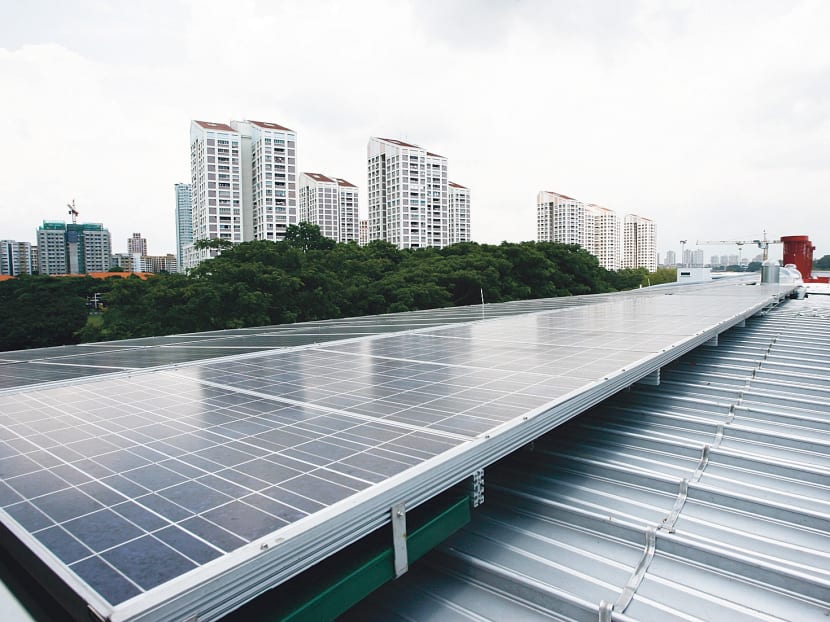WWF report ‘does not reflect S’pore’s environmental constraints’
SINGAPORE — The authorities have responded to a report that ranked Singapore poorly in terms of ecological impact, calling the methodology used “questionable” and saying the report does not accurately reflect Singapore’s environmental constraints and commitment.
SINGAPORE — The authorities have responded to a report that ranked Singapore poorly in terms of ecological impact, calling the methodology used “questionable” and saying the report does not accurately reflect Singapore’s environmental constraints and commitment.
The Ministry of the Environment and Water Resources (MEWR) was commenting on the biennial Living Planet Report published by the World Wide Fund for Nature (WWF) last month, which found that Singapore has the seventh-largest ecological footprint out of 152 countries surveyed. Ecological footprint is a measure of a population’s demands on natural resources.
The ministry said in a statement yesterday that the report “fails to recognise Singapore’s unique circumstances as a small island city-state with no hinterland”.
“The report does not give due recognition to Singapore’s real environmental achievements, including our long-standing commitment to sustainable development and resource efficiency,” MEWR added.
The report said the Republic’s ranking worsened from its previous 12th spot in the 2012 report due to carbon emissions produced within the country as well as indirectly through activities driven by Singapore’s economy in other countries.
Consuming large amounts of imported food and services also contributes to the amount of carbon emissions produced per capita.
However, MEWR rebutted that while Singapore can reduce consumption, improve operational efficiency and reduce the carbon footprint of activities taking place within Singapore’s borders, it has “no control over the upstream manufacturing and processing of imports — hence their footprint”.
MEWR also pointed out that the methodology employed by WWF deviated from internationally-accepted carbon accounting methodology of the United Nations Framework Convention on Climate Change (UNFCCC), where emission embodied in imported goods are attributed to the exporting country instead.
The report also allocated international marine and aviation bunker emissions to each country in proportion to the country’s share of international trade volume, a practice not shared by other agencies such as UNFCC and International Energy Agency.
“This results in a gross over-estimation of Singapore’s per capita carbon footprint as Singapore sits on a vital global shipping route and has one of the busiest transhipment ports in the world,” said MEWR.
The report also failed to recognise Singapore’s limited access to renewable energy resources compared to other larger and geographically more diverse countries, said MEWR.
Efforts to invest in solar energy — the only feasible option for the city-state — have also been limited by geographical size.
“Given that the methodology in calculating carbon emissions is questionable and also takes no account of Singapore’s size and circumstances (for the reasons given above), the conclusion in the (report) that Singapore has the seventh largest per capita ecological footprint of the 152 countries studied is similarly mistaken,” said MEWR.
The ministry also stressed that Singapore is committed to reducing its carbon emissions — less than 0.2 per cent of global emissions — by focusing on raising energy efficiency across all sectors through the Energy Conservation Act implemented in April last year.
“Singapore is on track to meeting its unconditional pledge at the UNFCCC to reduce emissions by 7 to 11 per cent below business-as-usual levels by 2020,” said MEWR. “We hope that the above clarifications provide a fuller and more accurate view of Singapore’s environmental constraints and commitments.”
Asked about MEWR’s statement, WWF-Singapore chief executive officer Elaine Tan said WWF appreciates that the Government is taking the issue seriously. “Development entails a direct impact on domestic as well as neighbouring natural resources, so both sound domestic policies and transboundary cooperation are key towards moving in the direction of a green economy,” she said.
“WWF looks forward to continuing our positive collaboration with the Singapore Government in achieving this objective, for the good of people and planet alike.”







